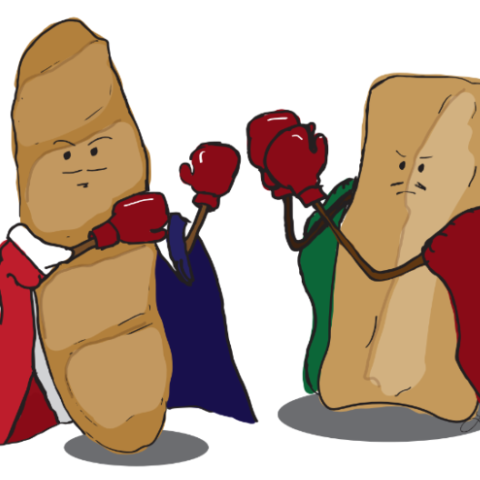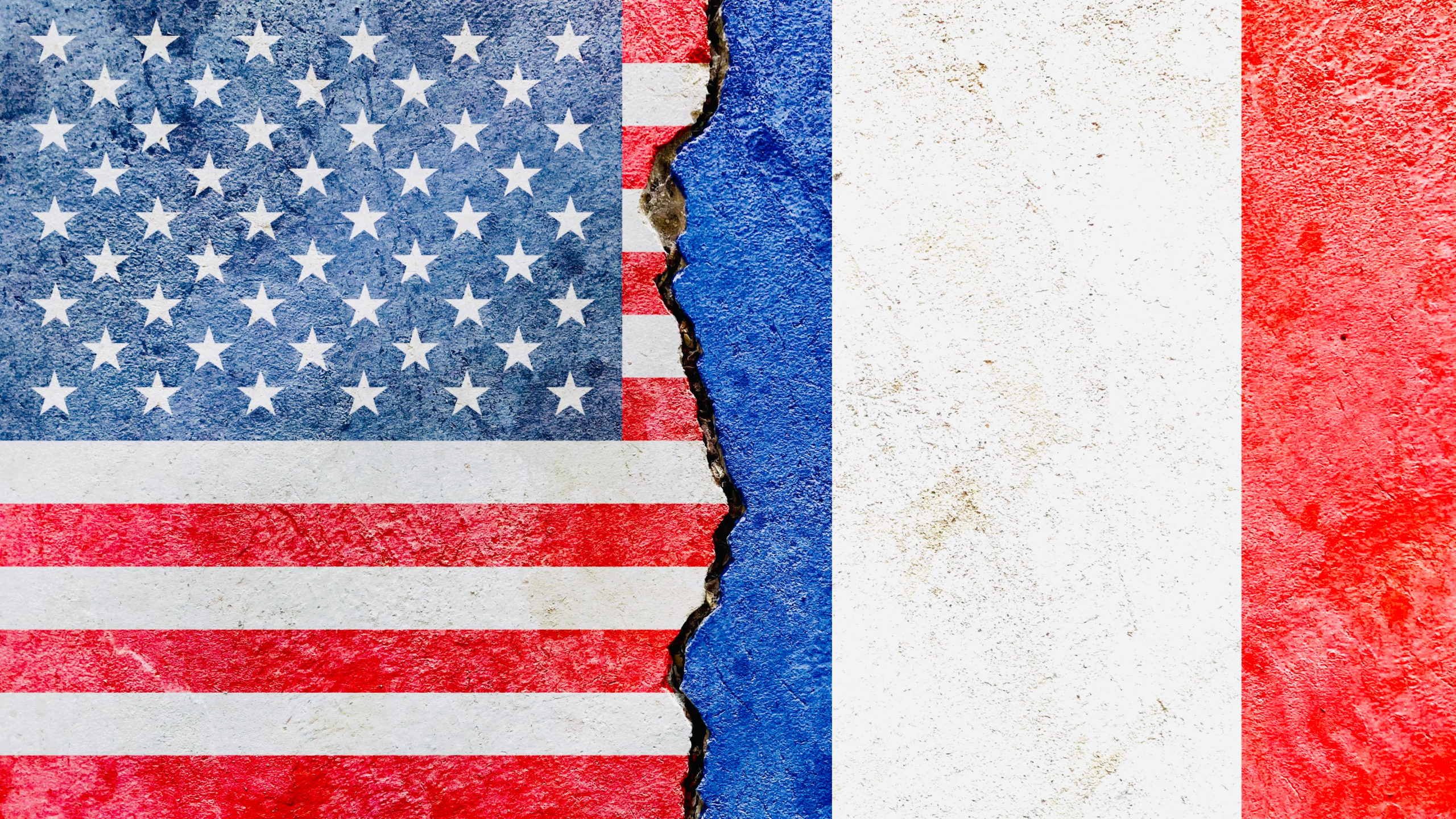2015 began with a resurgence of international terrorism. Within the first week of the year, the Charlie Hebdo magazine headquarters were attacked by two gunmen, killing 12 employees. The attack was heavily discussed in the media and described by French President François Hollande as a “terrorist attack of the most extreme barbarity.” The international community was quick to express solidarity with France, as rallies and other shows of support, including hefty financial donations from governments and private groups, helped to quickly get the magazine back up and running.
Nigeria was busy with other matters. January 3 through January 7, the week preceding the Charlie Hebdo attacks, Boko Haram captured their seventeenth town in the “Baga Massacre.” While many news organizations and local officials estimate that the death toll could be high as 2,000, the Nigerian military says the number is closer to 150. Although there have been hints from the United Nations of a multinational force to fight Boko Haram, real international action has yet to come to fruition.
“Terrorism” is a tricky phenomenon to articulate. The CIA defines it as “premeditated, politically motivated violence perpetrated against noncombatant targets by subnational groups or clandestine agents.” Essentially, terrorists have a political purpose and attack innocent people. The amorphous term leaves little room for a discussion of how governments and the media problematize specific incidences. This nuance is critical to understanding the broader implications of terrorist activity and avoiding misrepresentations of different insurgent groups.
The Charlie Hebdo attack received significant international attention. “Je Suis Charlie” quickly spread through Twitter and the rest of the Internet, signifying support for the magazine and their right to free speech. The attack was seen as a symbolic threat to the Western notion of self-expression, representing a violent, religious attempt to restrict the magazine’s Charlie Hebdo demonstrated their resilience a week after the attack by re-running a controversial cover of Muhammad from a 2011 issue.
Other terrorism doesn’t appear to be quite as salient. The developing world continually fails to grab attention like attacks in Europe and the United States. Boko Haram has been wreaking havoc on the northeast part of Nigeria and neighboring countries. The terrorist group has had connections to Al-Qaeda and ISIL, and is attempting to implement Sharia law in its territories.
Just in the first half of 2014, Boko Haram killed more than 2,000 people. In April 2014, the group kidnapped 276 schoolgirls, stirring up some media attention with the #BringBackOurGirls campaign, which is still working to rescue the abducted children. By the end of last year, over 1.5 million people had fled the conflict zone.

The group responsible for the Charlie Hebdo attacks is not a new threat to Europe and United States. Al Qaeda in the Arabian Peninsula (AQAP), a militant Islamist organization based in Yemen and Saudi Arabia, is the most deadly and active branch of Al Qaeda. While they do not have the same sovereign control over territory as Boko Haram, they present a more direct threat to the United States’ national interests. The group was propelled by recruiter and activist Anwar al-Awlaki, who founded Al Qaeda’s “Inspire” magazine and is believed to have connections to the Fort Hood Shooter, Christmas Day “Underwear Bomber,” Times Square Bomber, and the cargo planes bomb plot. They have killed hundreds in Yemen, but have had only sporadic success internationally with attacks in the United States and France.
The United States security apparatus pays great attention to AQAP. This includes a heavy drone campaign featuring about 100 drone strikes killing over 400 people in the last 15 years, over one fifth of these since the beginning of 2014. The CIA also conducts covert targeted killings against Al-Shabaab in Somalia and more recently against ISIL in Iraq. As Obama asks Congress for another Authorization for the Use of Military Force to cover the Islamic State in addition to Al Qaeda, Nigeria remains out of the picture entirely.
Regardless of the efficacy of U.S. counter-terror activities, it is clear Boko Haram is less of a concern. Perhaps this can be explained by geography, as ISIL and Al Qaeda both have direct effects on Saudi Arabia, a critical U.S. economic and military ally in the Middle East. Perhaps the media is unable to provide adequate coverage about a conflict in a region that they deem is inaccessible due to security concerns.
But maybe even more important is how these groups impact the West and the psychological threat they project on core American and European values. Although all three are listed as Foreign Terrorist Organizations by the CIA, AQAP is the only group to commit successful terrorist attacks against the United States. What distinguishes Boko Haram and ISIL is unclear; it could range from geography and strategic importance to the perceived strength of the group and their international ambitions.
It is no coincidence that media coverage has fallen directly in line with the interests of the United States and its developed allies. African victims of systemic terrorism are not as well-recognized in the larger media outlets due to the lack of perceived threat to Western security or the feeling of apathy and extreme distance. Simon Allison wrote that “there are massacres and there are massacres…it may be the 21st century but African lives are still deemed less newsworthy—and, by implication, less valuable—than western lives.”
Nigeria’s situation has seen limited improvement. Since the beginning of the year, Boko Haram has attacked a bus, taken over a small village, torched a town of hundreds, committed multiple suicide bombings, and kidnapped 40 children. President Goodluck Jonathan’s government has called for further military aid from the United States and the United Nations; however, concerns about corruption within the government have stymied assistance efforts. In an interview with the Wall Street Journal, Jonathan asked “Are they not fighting ISIL? Why can’t they come to Nigeria?”
One thing is certain—the United States does not have a neat solution to Boko Haram. Rather, they are directly implicated in the rise of these insurgencies. The United States is especially out of sorts on Nigeria because of their initial role in Boko Haram’s development. WikiLeaks released classified CIA documents in 2009 and in subsequent years that revealed an American attempt to contain the influence of a rising Nigeria and eliminate them as a rival in the region. The United States is reported to have taken advantage of political instability in Nigeria and provided aid to rebel groups in an attempt to destabilize the government. They certainly achieved that result, but also ended up with Boko Haram. Money funneled from the embassy helped start the development of one of the worst insurgent groups in the world, a development the American intelligence community predicted before the group had even committee their first attack.
This is not to argue the United States is the single or even largest contributing factor. The government of Goodluck Jonathan has struggled to meet the demands of its people and corruption is rampant within the military. To avoid conspiracy, it can simply be observed that the United States has made mistakes and now is choosing to forget the situation entirely. The media has followed suit and Boko Haram has attracted little attention relative to AQAP and ISIL. This coverage deficit in the West reflects biases related to development, security, and even military strategy.
Three days after the Charlie Hebdo attacks, Boko Haram militants strapped explosives to a 10-year-old girl and sent her into a city’s market, killing 19 people. In Niger, a state bordering Boko Haram territory and feeling the burden of the insurgent group, ten people were killed and dozens injured directly following the publication of the Charlie Hebdo post-attack issue. These people are no less valuable than the editor and contributors at the French magazine, but continue to be less newsworthy.
Certain terrorist attacks gain significance because of the destruction of key political symbols like freedom of the press. The “Je Suis Charlie” campaign was quick to pick up internationally but Nigeria is still waiting for “I am Baga Too.” The United States may not view Boko Haram as a direct threat and certainly has no idea what to do about them, but that does not make them any less terrifying.
– By Robert Galerstein


